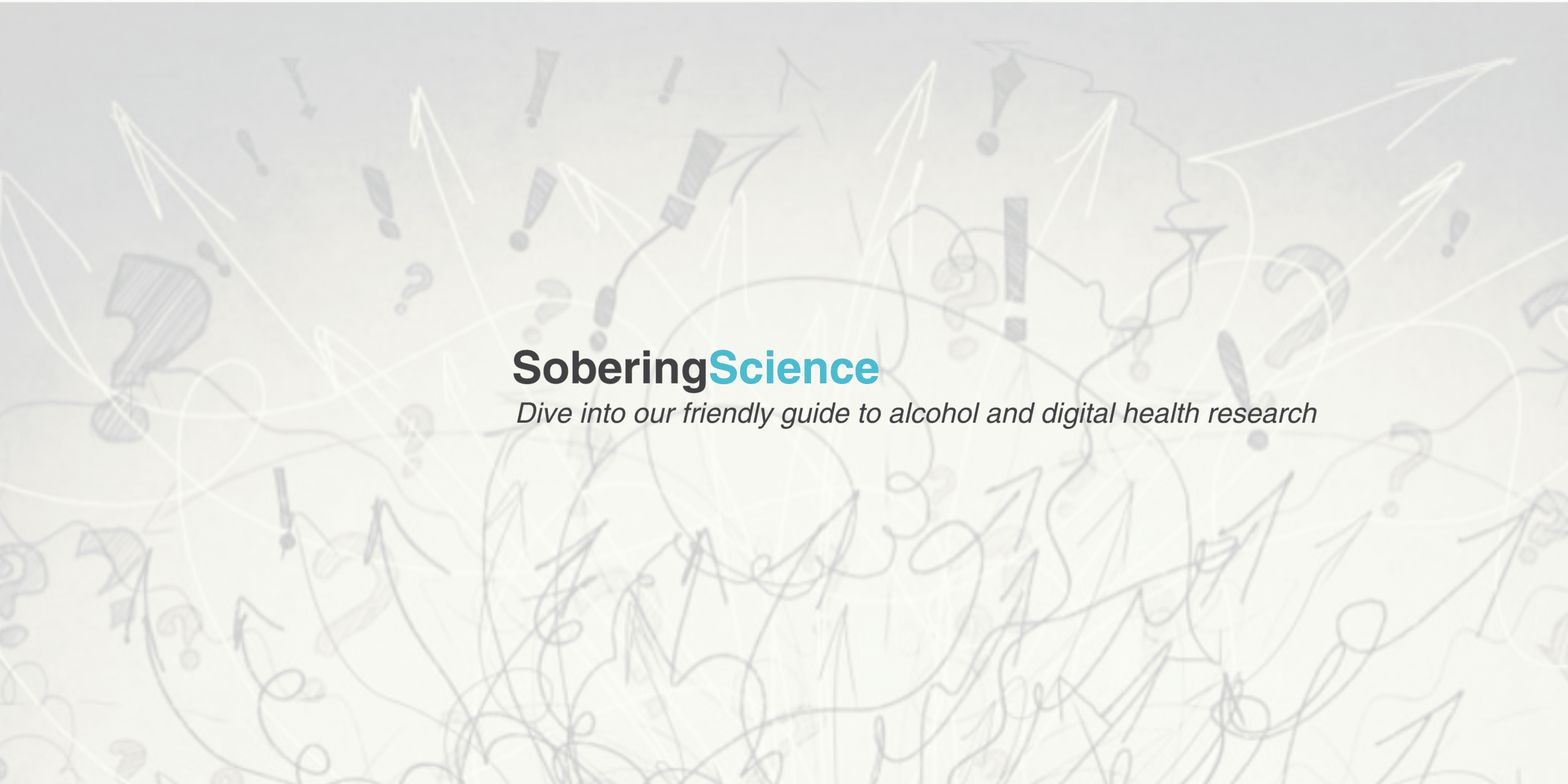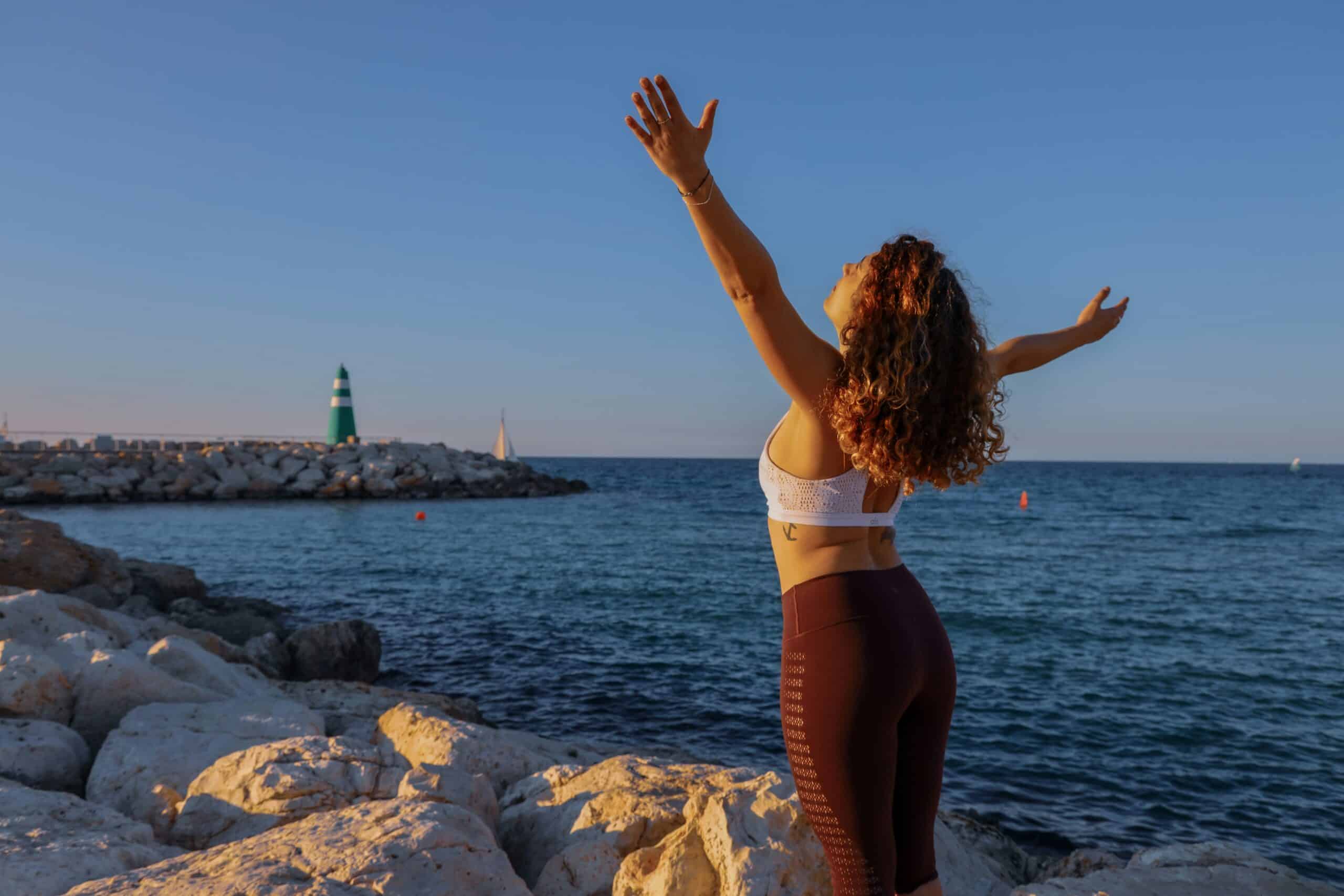
Reducing the Stigma of Not Drinking
One of the biggest challenges I found when making the decision to go alcohol free is having a ‘’why’’. I knew for a long time that alcohol did me more harm than good so I could easily justify to myself why not to drink. When it came to giving others my reason why, it was not so simple. For a period, I continued to drink simply because I didn’t want to put a label on myself. I thought that becoming a non-drinker would make me seem ‘boring’ and ‘uptight’ when meeting new people and I just didn’t want to have to explain my decision not to.
When I did give up drinking, and people asked me why, I decided to give a simple and honest answer which is that ‘being alcohol free is much better for my mental health’. People have generally been very supportive of this and sometimes will make a comment on their own experience such as ‘I also find myself feeling anxious the morning after having a few drinks’.
This subject just got me thinking more deeply about why it is that non- drinkers are often expected to justify why they are not drinking. The most obvious explanation is that drinking is so normalised in Australian culture. We see drinking often being encouraged in sporting clubs to celebrate after a game, and Friday afternoon drinks are often provided in workplaces to reward staff at the end of the week. Being brought up in this culture, it isn’t really a surprise that drinking is so ingrained and being a drinker is seen as the society norm.
Alain, a third-year medical student, has never drunk alcohol and says that the first question he is asked when he tells people that he does not drink is, why? When I queried him, he said ‘I think for most people, it is much more complex than a short single-sentence answer at a party or bar can capture’. Alain has a few reasons for not drinking, one being that he is a runner and often trains in the morning and chooses not to drink alcohol as this would compromise his ability to perform. He said that this is usually the reason that he will give someone he doesn’t know very well.
Alain also credits avoiding the overall health issues associated with drinking as a reason for being a teetotaller. ‘As a medical student, I am constantly learning about more and more conditions that list alcohol intake as a risk factor for acquiring illnesses, whereas on the other hand, I am yet to see alcohol listed as a health benefit or treatment in any of my textbooks.’
Since he was a teenager, Alain has been to a lot of parties and social events where others are heavily drinking. He reflects, ‘On the odd occasion, I have had strangers criticise me for not drinking, stating that I’m no fun, or some other nonsense insult. I usually just brush this off because I know I am having fun without alcohol, I feel good sticking to my own morals and not giving in to peer pressure and I know I’ll feel better than them in the morning.’
Greg decided to quit drinking this year to challenge himself. He said, ‘I wouldn’t call myself a heavy drinker, but I was a binge drinker which is so common in Australia.’ Greg previously worked in an industry with a huge drinking culture. He said, ‘I used to take business partners out for lunches and dinners and drinking was such a big part of these events. If I wasn’t drinking, or didn’t want to take shots, there would be so much peer pressure and ridicule for not drinking. Comments like “don’t be soft” would be used and I would often cave in and drink more to appease my clients.’
When I was drinking heavily during my twenties, I was highly insistent that my friends join in on my drinking antics. I accused people who weren’t drinking of being ‘a party pooper’ and would often try to convince them to change their mind and it would be ‘no fun’ if they didn’t drink with me. I feel ashamed of this now, but I think my behaviour was just a reflection of the culture around me and my own insecurities.
Recently I was very surprised to discover that approximately 20% of Australians over the age of 18 are in fact non-drinkers, with younger age groups driving an increase in the proportion of non-drinkers in recent years, as indicated by the National Drug Strategy Household Survey 2019. This may be for similar reasons to Alain’s, Greg’s and mine, but there are many more reasons that people choose not to drink, including religious and cultural beliefs, health conditions or simply not liking the taste.
So how do we normalise not drinking? There will be no quick fix to changing the Australian pro-drinking culture, but there is already a growing trend of people choosing sobriety. Another promising sign is that the market for non-alcoholic drinks is steadily increasing with more non-alcoholic options at bars and pubs becoming available and the opening of non-alcoholic bottle shops in major capital cities.
As for having a ‘why’ for not drinking this will be very dependent on the individual. I have become very comfortable with my simple and honest answer and I am proud to say that I don’t drink because I know it’s the best choice for me. Just like anything, if you know you’re making the best decision for you, why should it matter what anyone else thinks? The more people who talk about their sobriety or moderating their drinking, the more accepted it will become and maybe the Australian drinking culture will start to shift.
References:










Great article. Here in the States we seem to have a similar drinking culture: sports, Friday after work, events and so on. I think here also the younger set is slowing down on alcohol. Older seniors as well due to health issues. We have our share and more right now with alcohol fueled fights and worse.
I personally have chosen to not drink at outings mainly because I feel better and still have a good time
Great article Sarah, thank you for sharing! This sobriety thing is such a good thing and with more people choosing this way of life, hopefully the stigma just keeps reducing. Take care.
I have an obsession for alcohol in my mind and an allergy of alcohol in my body. When I wasn’t drinking I was always thinking about drinking and when I drank I could never get enough in me. More was better. That is why I quit. I am staying away from that first drink nowadays.
Thanks for highlighting the shift in Australian drinking culture. As the percentages of people choosing to not drink alcohol increases, hopefully the need for an explanation will not be necessary. Bring it on.
I recently had an iso 50th and 2 glasses of moet after 2 years not drinking. I didn’t finish the 2nd and had lots of water over the evening. My iso friend came over and we did an online cooking class together. The next day, boy did i have a bad headache. I felt it in my body. Horrible. And that reinforced why i don’t drink. It is better without. No physical impairments; wake up early and fresh; get 7 hours sleep; no liver enzymes creeping up; reducing cancer risks and heart disease risks; no anxiety; no ‘oh god what did i do/say last night’; remembering all my conversations and commitments; remembering the plotlines of the movies i see; really being present at music concerts; no massive post drinking depression; saved money; can drive everywhere; can leave things early and be home under my own steam; saved taxi and uber costs; sober xmas and NYE means no family stress (they hardly drink at all. I was the one chugging through champers) etc; feeling possitive and self love rather than beating myself up.
And i was a bottle of wine a night gal. I just choose not to now. I don’t feel any stigma. My friends havent made a big deal of it. Some of them dont drink either, or not much. It’s like a fog was slowly removed over 2 years.
Well done othello. I too am nearly two years without alcohol. I too have the occasional “if it’s French and freezing” rule with Champagne. That first mouthful is delicious, the fine bead running down your throat, the yeasty tones playing with your taste buds and nose, and then: it gets boring. I finish the glass (I’m sorry but at $25 a glass I’m finishing it!!), I note I feel a bit tired and have slurred the last sentence, and I say a happy farewell til next time. On one occasion I ordered a glass of wine with main meal an hour later and didn’t finish it. It’s so wonderful to see the lie we believed for so many years disproved again isn’t it?
I feel you both, Peter and Othello. Sometime I think I need to have ‘relapse’ before coming to realisation that I really don’t need alcohol in my life.
Great article. I am happy not drinking. It has got me in a lot of trouble over the years. My friends now apologise for getting so drunk in front of me. I just say don’t apologise, it’s your choice. As the article states I know that I will be able to get up in the morning and keep going as usual, when I was drinking I was waiting for the bottle shop to open to get rid of the anxiety and or hangover. Love this site and its down-to-earth articles.
Really enjoyed reading this. Thankyou.
I’ve been alcohol free for over 2 years now and for the first 6 months I only told immediate family because I didn’t want to deal with the questioning of why from friends because for some people no matter the answer they still didn’t get it. I feel much more comfortable now telling people I don’t drink because I am much more secure knowing it is the right and only choice for me. Just last week I had a discussion with my brother who told me “if a guy doesn’t drink at the footy club I don’t trust him” a comment which blew my mind and when we delved into it he really couldn’t come up with a plausible reason why he thought this. “You don’t trust someone who chooses not to put a mind altering substance in their body? WHY?” But I know this line of thinking is entrenched in the Australian culture for many but I can most definitely see the tide shifting to a new and healthier perspective!! BRING IT ON!!!!!!!!!!
I never really understood this concern. When I am able to stop drinking with don’t think anyone will mind or even notice, at a party or dinner. I’m 55 now but most family and friends would have loved to see me drink less over the last 30 years.
As long as you’re still good company and enjoying yourself why should others mind?
I feel the same way that you do.
Why do you have to explain your reasoning for not drinking to anyone? I think that insecure people are seeking approval. It’s too bad because all the benefits of not drinking are true and worth quitting alcohol.
When someone asks why you quit drinking alcohol, ask them “why not?” and then order your club soda and listen to their reasons.
I was a medical student once and I also recall another medical student I was urging to come out one night.
And he said “sorry but you smell of alcohol and I recently saw a girl who’d just been killed in a car accident and her body smelled like that.”
What can you say to that?
I never understood this concern. I don’t think family and friends would care or even notice if I wasn’t drinking at a party or dinner.
Actually I’d be better company so they probably would notice. I’m 53 now amd I think lots of my family and friends would have been glad if I had drunk less over the last 30 years.
I could easily think of an excuse.
Or pretend I had wine in the glass, if people were persisting.
Apple juice is the same colour?!
It’s just the same in the UK in my experience. I hope I am.never the reason for someone drinking in the future but I know I have been in the past.
Thank you for these valuable personal experiences. Hearing what other people are going through on their journeys without alcohol really helps me. I am finding a shift in my friendships and am not really sure how this will pan out. We always got together at pubs and bars, and always drank to excess.
I love the ways my life have opened up now that alcohol is no longer in the picture. The biggest (and most challenging aspect) is the extra time I have in the evenings. I can now do work (I run a business from home), read, watch movies/programmes and actually remember them the next day….and, I can drive and go out at night! Wow!
Experience has proven me that if someone is disturbed because I do not drink is because that person has a drinking problem. It´s like “how dare you not drinking when I struggle a lot to control my drinking?” If someone is ok with their drinking habits they will not give a toss about it. Pretty much like sexuality.
Thanks for this article. In the US, the normalization of drinking has become extreme. And to make matters worse, hard liquor has become “chic” again, hiding in the designer cocktail craze.
At 60, I finally feel comfortable telling people I don’t drink because it doesn’t agree with me. Truth be told, after 40 years of drinking moderately, binging, abstaining, the whole gamut, I finally realized a few years ago that I was sick and tired of thinking about it. What a relief it’s been to not have to try and “manage” it.
I’m also now much more acutely aware of how much my 23 yo son has had to navigate our alcohol-fueled culture. Especially in his age cohort. Incredibly amplified by the extreme disruption that Covid has brought to our country. The new normal party for him and his friends? Drinking while playing video games together….technically drinking alone!
My 20yo daughter on the other hand has discovered non-alcoholic distilled gin. Sold in a liquor store. Lovely summer mocktail with fizzy water and lime. Thank goodness!
Keeping optimistic in the US these days is a daily struggle, but it’s articles like this that help me keep the faith that things will get better 🙂
With new people, I don’t feel the need any more to justify or explain. And most people, I find, are absolutely fine.
With old friends, I recognise that me non-drinking is sometimes hard for them for reasons I have no control over. So that is where alcohol-free beer can help: I will say I can’t keep up with them, buy and pour an AF beer into a glass and then appear to drink with them. By their 3rd or 4th, they think I am drinking just like them & by the time the conversation has got to the inevitable stupid stage, I find it easy to slip away. 😁
I used to make up excuses if someone asked me why I wasn’t drinking at social occasions e.g ‘I’m training for a half marathon’ or ‘I’ve got a hell of a lot of work to do tomorrow’. It’s been over five years since I quit now. I eventually got sick of lying and now I am confident enough to say ‘I drank like a fish for 30 years and I’d had enough’ or ‘I was sick of wasting half my life in agonising hangovers on the couch’. Both statements are true. I usually find they never ask me anymore questions. The direct method works, as long as you don’t make the other person feel bad by saying something like ‘I realised that heavy drinking is totally stupid’.
When I am asked why I don’t drink, I just flip the question around and ask people why do you drink?
I dont drink.
I also don’t club baby seals. So what.
I focus on the DOs.
I do have sovereignty.
I do have the capacity for compassion.
I do care that I take care of myself.
It was important for me to break the occidental spell of always “recovering from a handicap”.
Theres no handicap, the belief is junk.